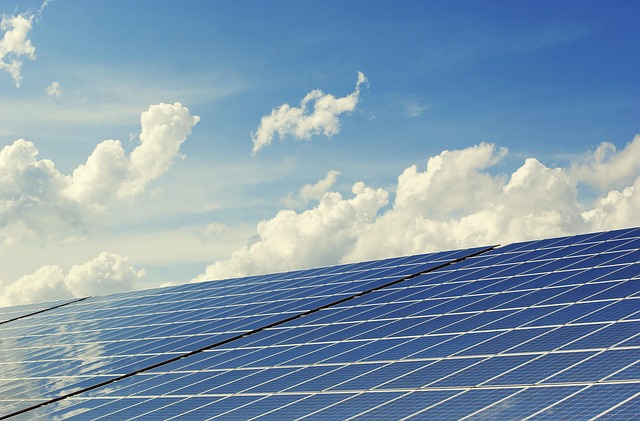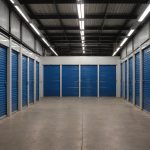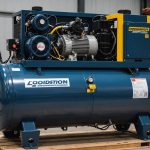Factories face rising energy costs and increasing pressure to cut carbon emissions. Commercial solar panels offer a proven strategy to reduce expenses while securing reliable, sustainable power. With scalable systems tailored to industrial needs and backed by expert installation and support, businesses can unlock significant savings and enhance energy resilience over decades. This approach transforms factory roofs into powerful assets for long-term efficiency and environmental responsibility.
Understanding the Role of Commercial Solar Panels in Factory Settings
Solar Panels for Factories are essential in addressing the high-energy demands of manufacturing environments. Factories are ideal candidates for solar energy integration due to their extensive roof and ground space, enabling large-scale industrial solar installations. These systems help combat common challenges like fluctuating energy costs and grid dependency, offering a stable, cost-effective power source that ensures uninterrupted operations.
Also to read : Discover prime commercial property to let in beckenham
Utilizing factory solar power solutions also fosters environmental responsibility, reducing carbon footprints significantly. AlphaGen Energy’s bespoke systems demonstrate how advanced photovoltaic technology, combined with battery storage, can deliver rapid ROI—often within five years. Their approach ensures factories maintain energy resilience while lowering long-term costs.
Benefits and Financial Insights of Installing Solar Panels in Factories
Cost-Benefit Analysis and Return on Investment
Energy savings with solar panels transform factory balance sheets. For factories, commercial solar energy systems immediately reduce operational costs and protect against rising electricity prices. The initial outlay for industrial solar installations ranges widely, but strong solar power ROI for manufacturing is a consistent trend—payback periods for commercial solar can fall between four and five years, especially for high-demand sites. Larger factory solar power solutions typically yield even quicker returns. By optimizing rooftop or ground space with PV systems, factories can cut energy expenses by up to £15,300 annually.
Also read : Explore top rental opportunities for commercial spaces in beckenham
Environmental Advantages and Carbon Footprint Reduction
The benefits of solar energy for factories are twofold: financial and environmental. Using renewable energy for factories slashes carbon footprint, with each kWh generated reducing greenhouse gas emissions and enhancing compliance with environmental targets. Implementing commercial solar energy systems helps factories signal a strong commitment to sustainable operations.
Reputable Providers and Long-Term Financing Options
When selecting commercial solar panel suppliers, businesses should seek those with proven expertise in factory solar power solutions and comprehensive service packages. Flexible solar energy financing options ease the adoption process, and long warranties signal durability—supporting long-term savings and ongoing energy savings with solar panels for factories of all sizes.
Technical Aspects and Installation Process of Commercial Solar Systems
System Design, Panel Selection, and Capacity Planning
Solar panel system design industrial projects begin by analyzing the factory’s energy consumption. This process requires a precise energy audit to optimize solar power system sizing factories. Proper sizing ensures that solar panels deliver reliable, cost-effective energy year-round, helping businesses achieve energy independence and reduce operational costs solar considerably.
Choosing solar panels for factories hinges on efficiency, durability, and system compatibility. Commercial solar energy systems typically employ high-output modules—often 435W per panel—balancing performance with space and budget constraints. An effective solar panel system design industrial project maximizes rooftop assets while supporting future solar power system upgrades factories, if needed.
Installations must account for battery-led solar energy storage for factories, especially for facilities seeking to stabilize supply or capitalize on net metering. Factories with fluctuating demand often benefit from integrating energy storage as part of their initial solar panel system design industrial, enhancing energy management and supporting sustainability goals.
In summary, the right approach to commercial solar energy systems combines detailed planning, tailored product selection, and thoughtful solar power system sizing factories to foster substantial energy savings and secure long-term benefits.
Case Studies, Incentives, and Future Trends in Factory Solar Energy
Successful Factory Implementations and Achieved Environmental Targets
Factory solar power solutions are delivering measurable energy savings with solar panels in real-world scenarios. Notable solar energy case studies for factories like Croft Farm and Fluke Electronics show reductions of thousands of tonnes of CO2 and electricity cost. By shifting to commercial solar energy systems, factories are not only reducing factory energy costs but also benefiting from a significant decrease in their carbon footprint, aligning tightly with environmental impact solar industry targets.
Integrated industrial solar installations often feature battery-led solar energy storage for factories, enabling power even during grid disruptions. Using rooftop and ground-mounted commercial photovoltaic systems lets manufacturers use otherwise idle space while improving energy independence. The factory energy management with solar approach now includes real-time monitoring, helping optimize solar panel efficiency in industrial use and maximize ROI for manufacturing.
Government Incentives, Rebates, and Financial Support
While many UK government solar rebates for industry have sunsetted, several solar incentives for businesses remain—such as reduced VAT rates, select tax credits, and guidance on factory solar power incentives. These financial supports can help shorten the payback period for commercial solar and ease initial capital outlays, bringing long-term savings for factories investing in renewable energy for factories.










